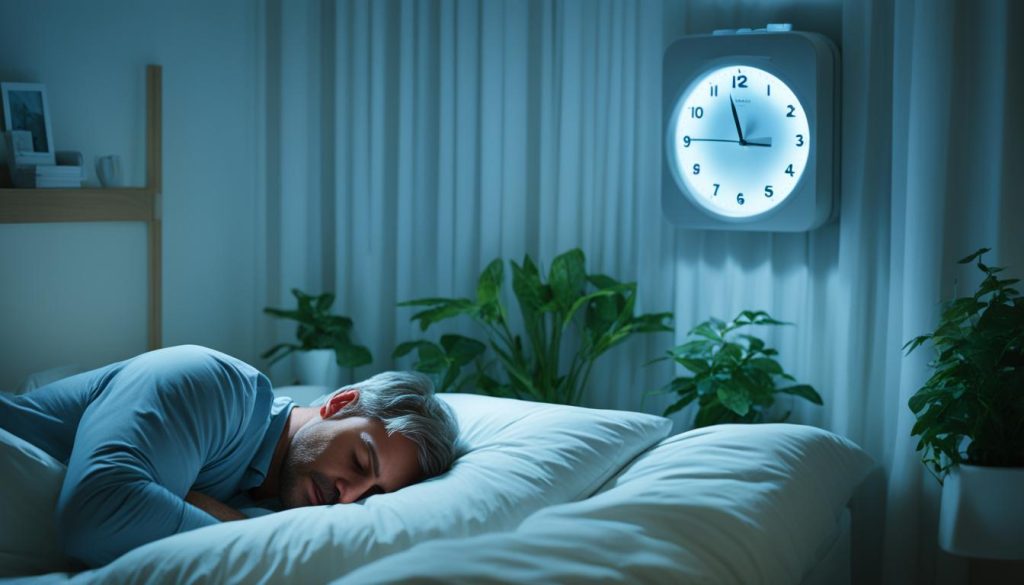Despite the importance of sleep for physical and mental well-being, many people struggle to get enough quality sleep. In this ultimate sleep guide, we will explore various strategies and techniques to help you improve your sleep quality and develop better sleep habits. We will cover tips for falling asleep faster, staying asleep throughout the night, and waking up feeling well-rested. Additionally, we will discuss natural remedies for insomnia and the importance of sleep hygiene in maintaining healthy sleep patterns.
How to Sleep Better?
Evaluating Your Sleep Environment
Creating a sleep-friendly environment is essential for improving sleep quality. Start by evaluating your bedroom environment and optimizing it for better sleep. Consider investing in a supportive mattress and pillow that provide proper spinal support. Choose bedding that feels comfortable and helps maintain a comfortable temperature. Use blackout curtains or a sleep mask to block out excess light. Minimize noise by using a fan, white noise machine, earplugs, or headphones. Keep your bedroom temperature cool, ideally between 65 to 68 degrees Fahrenheit. Establishing a consistent bedtime routine and giving yourself extra time before bed to relax can also contribute to better sleep.
| Effective Sleep Environment Factors | Actions |
|---|---|
| Invest in a supportive mattress and pillow | Choose options that provide proper spinal support for enhanced comfort. |
| Choose comfortable bedding | Opt for materials that feel cozy and help maintain a comfortable temperature throughout the night. |
| Control light exposure | Use blackout curtains or a sleep mask to block out excess light and create a dark sleep environment. |
| Minimize noise | Utilize a fan, white noise machine, earplugs, or headphones to reduce disruptive noises. |
| Maintain a cool bedroom temperature | Keep the temperature between 65 to 68 degrees Fahrenheit for optimal sleep conditions. |
| Establish a consistent bedtime routine | Create a relaxing routine before bed to signal your body that it’s time to sleep. |
| Give yourself extra time to relax | Allocate additional time before bed to unwind and destress, allowing for better sleep quality. |

Establishing Healthy Sleep Habits
Developing healthy sleep habits can greatly improve your sleep quality. Consistency is key when it comes to sleep. Set a fixed wake-up time and stick to it, even on weekends. Avoid napping too long or too late in the day, as it can disrupt your sleep schedule.
Engage in relaxing activities before bed, such as quiet reading, stretching, listening to soothing music, or practicing relaxation exercises like controlled breathing or mindfulness meditation. Limit exposure to electronic devices before bed, as the blue light can interfere with your natural sleep-wake cycle. Get exposure to natural light during the day to regulate your body’s internal clock. Engaging in regular exercise during the day can also promote better sleep, but avoid intense exercise close to bedtime. Be mindful of your caffeine and alcohol intake, as they can impact sleep quality.
To summarize, here are some healthy sleep habits to incorporate into your routine:
- Set a fixed wake-up time and stick to it
- Avoid long naps or napping too late in the day
- Engage in relaxing activities before bed
- Limit exposure to electronic devices before bed
- Get exposure to natural light during the day
- Engage in regular exercise, avoiding intense exercise close to bedtime
- Be mindful of caffeine and alcohol intake

The Benefits of Establishing Healthy Sleep Habits
Establishing healthy sleep habits can have numerous benefits for your overall well-being. Consistent sleep patterns regulate your body’s internal clock, resulting in a more restful and rejuvenating sleep. By engaging in relaxing activities before bed and limiting exposure to electronic devices, you create a peaceful sleep environment that promotes better sleep quality.
Getting enough natural light during the day and being mindful of caffeine and alcohol intake further contribute to sound sleep. Regular exercise not only improves your physical health but also aids in sleep regulation, making it easier to fall asleep and stay asleep throughout the night.
By incorporating these healthy sleep habits into your routine, you can enhance your sleep hygiene and improve your overall sleep quality, leading to increased energy, improved mood, and better concentration during the day.
| Sleep Technique | Description |
|---|---|
| Consistent wake-up time | Setting a fixed wake-up time helps regulate your sleep-wake cycle and promotes a consistent sleep pattern |
| Avoiding late or long naps | Avoiding napping too close to bedtime or for extended periods helps prevent disruptions in your sleep schedule |
| Engaging in relaxing activities | Activities like reading, stretching, and relaxation exercises prepare your mind and body for sleep |
| Limiting exposure to electronic devices | Avoiding electronic devices before bed helps reduce exposure to blue light, which can interfere with your sleep quality |
| Getting natural light during the day | Exposure to natural light regulates your body’s internal clock and promotes better sleep |
| Engaging in regular exercise | Regular physical activity helps regulate sleep patterns and promotes better sleep |
| Being mindful of caffeine and alcohol intake | Limiting caffeine and alcohol consumption can improve sleep quality and promote restful sleep |
Managing Sleep Worries and Stress
Worry and stress can significantly impact sleep quality. To manage sleep worries and promote relaxation, consider incorporating relaxation and stress-reducing techniques into your bedtime routine. Mindfulness and meditation exercises can help calm the mind and prepare it for sleep. Practice reframing unhelpful thoughts and creating a to-do list for the next day to alleviate anxiety. If worries persist, seek support from a trusted individual or consider consulting a healthcare professional. Explore natural remedies for insomnia, such as melatonin supplements, valerian, chamomile, or glycine, but consult with your doctor before trying any new sleep aids.

Conclusion
In conclusion, implementing sleep strategies and adopting healthy sleep habits can greatly improve the quality of your sleep and provide relief from insomnia. By following the tips and techniques discussed in this ultimate sleep guide, you can enhance your sleep hygiene, create a sleep-friendly environment, establish consistent sleep habits, and effectively manage stress and worries that may disrupt your sleep.
Remember to prioritize sleep as a vital component of your overall well-being. If you continue to experience difficulties sleeping or if your sleep problems worsen, it is advisable to consult with a healthcare professional who can provide further guidance and support.
Restful and rejuvenating sleep is essential for maintaining optimal physical and mental health. Incorporating the strategies outlined in this guide can help you achieve a more restorative sleep, allowing you to wake up feeling refreshed and revitalized each day.
FAQs
How can I improve my sleep quality?
There are several ways to improve your sleep quality. Start by creating a sleep-friendly environment by optimizing your bedroom for better sleep. Establish a consistent bedtime routine and give yourself time to relax before bed. Develop healthy sleep habits such as setting a fixed wake-up time and avoiding napping too long or too late in the day. Engage in relaxing activities before bed and limit exposure to electronic devices. Manage stress and worries by incorporating relaxation techniques into your bedtime routine.
What can I do to create a sleep-friendly environment?
To create a sleep-friendly environment, evaluate your bedroom and make necessary changes. Invest in a supportive mattress and pillow that provide proper spinal support. Choose bedding that feels comfortable and helps maintain a comfortable temperature. Use blackout curtains or a sleep mask to block out excess light. Minimize noise by using a fan, white noise machine, earplugs, or headphones. Keep your bedroom temperature cool, ideally between 65 to 68 degrees Fahrenheit. Establish a consistent bedtime routine and give yourself extra time before bed to relax.
How can I develop healthy sleep habits?
Developing healthy sleep habits involves establishing a consistent sleep schedule. Set a fixed wake-up time and stick to it, even on weekends. Avoid napping too long or too late in the day, as it can disrupt your sleep schedule. Engage in relaxing activities before bed, such as quiet reading, stretching, listening to soothing music, or practicing relaxation exercises like controlled breathing or mindfulness meditation. Limit exposure to electronic devices before bed, as the blue light can interfere with your natural sleep-wake cycle. Get exposure to natural light during the day to regulate your body’s internal clock. Engage in regular exercise during the day, but avoid intense exercise close to bedtime.
How can I manage sleep worries and stress?
To manage sleep worries and promote relaxation, consider incorporating relaxation and stress-reducing techniques into your bedtime routine. Mindfulness and meditation exercises can help calm the mind and prepare it for sleep. Practice reframing unhelpful thoughts and creating a to-do list for the next day to alleviate anxiety. If worries persist, seek support from a trusted individual or consider consulting a healthcare professional. Explore natural remedies for insomnia, such as melatonin supplements, valerian, chamomile, or glycine, but consult with your doctor before trying any new sleep aids.
How important is sleep for overall well-being?
Sleep is crucial for physical and mental well-being. It plays a vital role in various aspects of our health, including cognitive function, immune system function, mood regulation, and physical recovery. Lack of sleep or poor sleep quality can lead to various health issues, including increased risk of chronic conditions such as obesity, diabetes, and cardiovascular disease. Prioritizing sleep and adopting healthy sleep habits is essential for overall well-being and should not be overlooked.

